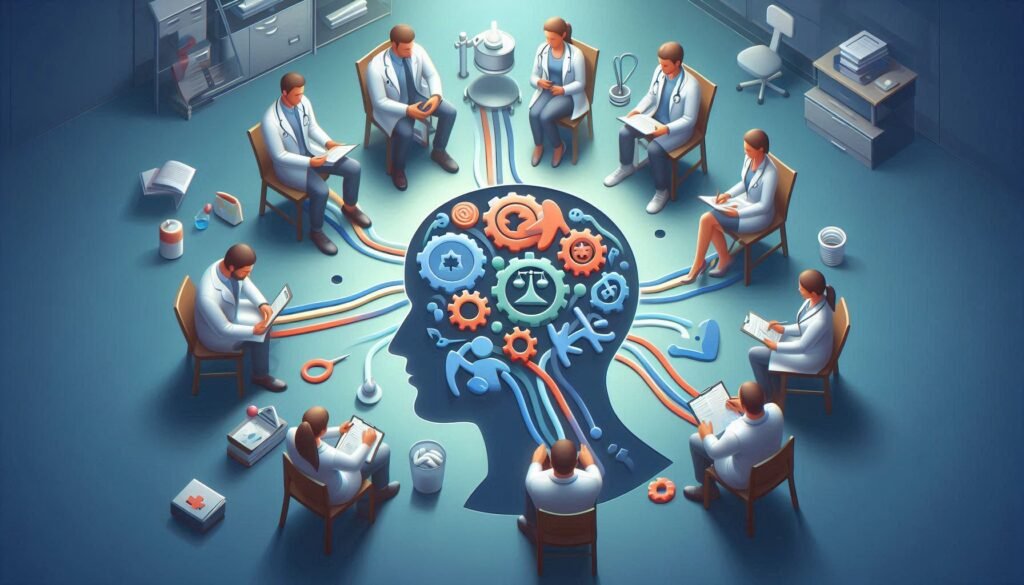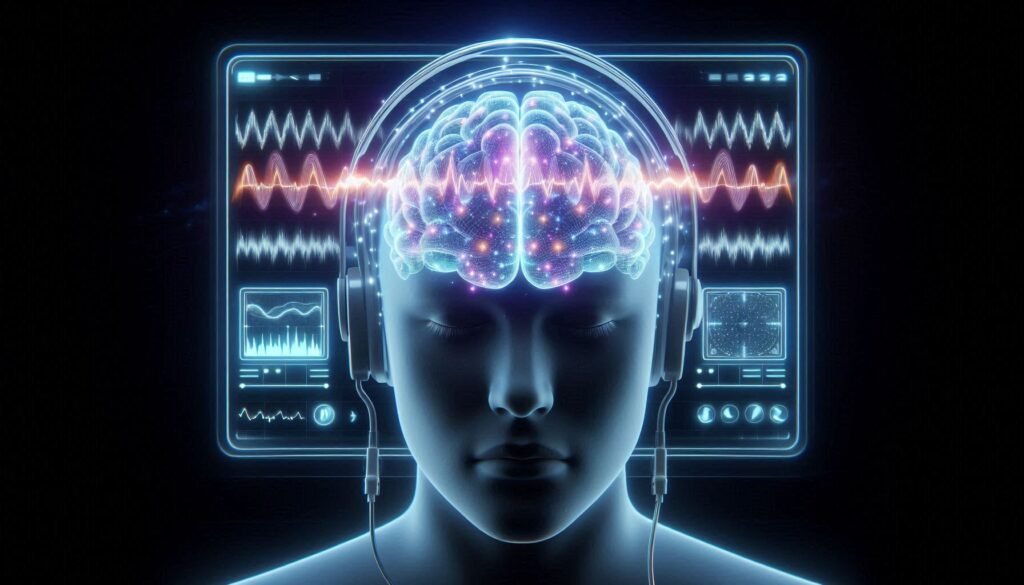Concussions are complex injuries that can significantly impact an individual’s life. The aftermath of a concussion often extends beyond physical symptoms, affecting cognitive function, emotional well-being, and daily activities. Given this multifaceted nature of concussions, a one-size-fits-all treatment approach simply doesn’t cut it. That’s where the concept of implementing a multidisciplinary approach to concussion management comes into play.
A collaborative effort from various specialists is essential for effective recovery and rehabilitation. By bringing together experts from different fields, we can address the diverse needs of patients more thoroughly than ever before. This comprehensive strategy not only enhances patient outcomes but also fosters better communication among healthcare providers and ensures that every aspect of recovery is considered.
In this blog post, we will explore why a team-based method matters in concussion care and identify key members who contribute to successful management strategies. Let’s dive deeper into how each specialist plays their part in promoting healing and restoring quality of life after injury!

Understanding the Complexity of Concussion: Why a Team Approach Matters
Concussions are not just bumps on the head; they are intricate injuries that can affect various aspects of a person’s health. Symptoms can range from headaches and dizziness to cognitive impairments and mood changes. This complexity requires an understanding that no single specialist has all the answers.
Healing from a concussion often involves multiple systems within the body, including neurological, physical, and psychological components. Each individual’s experience with a concussion is unique, making tailored care essential for effective recovery.
A multidisciplinary approach allows healthcare providers to collaborate closely, ensuring that every facet of a patient’s condition is addressed. This teamwork enhances communication between specialists and fosters comprehensive assessments.
When experts from diverse fields—such as medicine, therapy, psychology, and rehabilitation—join forces, patients benefit from coordinated strategies designed specifically for their needs. A team-based model ultimately leads to better outcomes as it cultivates holistic care in managing this complex injury effectively.
Key Members of the Multidisciplinary Concussion Care Team
A successful multidisciplinary approach to concussion management relies on a diverse team of professionals. Each member plays a vital role in addressing the multifaceted impacts of concussions. This collaboration ensures comprehensive care tailored to individual needs.
At the forefront is the primary care physician, who coordinates treatment and referrals. They monitor overall health and manage any coexisting conditions that may complicate recovery.
Neuropsychologists are essential for assessing cognitive function and emotional well-being. Their evaluations guide therapy decisions and help identify specific areas requiring intervention.
Physical therapists focus on restoring balance, strength, and coordination. They design individualized exercise programs to facilitate safe return-to-activity while preventing further injury.
Occupational therapists contribute by helping patients regain daily functioning skills impacted by their injuries. Together with mental health professionals, they address psychological challenges that often accompany concussions, creating a holistic support system for recovery.
The Role of the Primary Care Physician in Coordinating Care
Primary care physicians (PCPs) play a pivotal role in concussion management. They are often the first point of contact for patients after an injury occurs. Their expertise allows them to conduct initial assessments, ensuring that any red flags are addressed promptly.
Once a diagnosis is made, PCPs coordinate care among various specialists. This includes communicating with physical therapists, neuropsychologists, and mental health professionals to create a cohesive treatment plan tailored to the patient’s needs. By acting as the hub of information exchange, they help streamline communication and reduce potential gaps in care.
Furthermore, primary care physicians monitor progress throughout the recovery process. Regular follow-ups allow them to adjust treatment plans based on how well patients respond or if new symptoms arise. Their comprehensive approach ensures that all aspects of a patient’s health are considered during recovery.
PCPs also educate patients about concussion management strategies and what to expect during their journey back to normal activities. This guidance fosters confidence and promotes adherence to prescribed interventions.
Neuropsychological Assessment: Guiding Treatment and Return-to-Activity
Neuropsychological assessment plays a crucial role in concussion management. This process evaluates cognitive functioning, emotional health, and behavioral changes that may arise after an injury. Understanding these areas helps healthcare providers tailor treatment plans specific to the individual’s needs.
Testing typically includes memory assessments, attention span evaluations, and problem-solving tasks. These measurements provide valuable insights into how the concussion is affecting daily activities and overall mental health. Clinicians can identify any deficits that might not be immediately apparent through physical examinations alone.
These assessments also help determine when it’s safe for individuals to return to their regular activities. By measuring recovery progress over time, healthcare professionals can make informed decisions about resuming sports or work commitments while minimizing risks of re-injury.
Moreover, neuropsychological evaluation fosters communication among team members involved in care. Sharing findings ensures everyone understands the patient’s cognitive status which enhances collaborative treatment planning tailored for optimal recovery outcomes.
Physical Therapy Interventions Within the Multidisciplinary Framework
Physical therapy plays a critical role in the multidisciplinary approach to concussion management. It focuses on restoring physical function and enhancing mobility after an injury. Therapists assess each patient’s unique needs, tailoring interventions to address specific symptoms that may arise post-concussion.
Therapeutic exercises are often employed to improve balance, coordination, and strength. These exercises help patients regain confidence in their physical abilities while minimizing the risk of re-injury. The gradual progression of activities ensures safe recovery aligned with individual tolerance levels.
Manual therapy techniques can also be beneficial for addressing musculoskeletal issues related to concussions. This hands-on approach targets tight muscles and joint restrictions, promoting better movement patterns and reducing pain.
Additionally, education is paramount in physical therapy sessions. Patients learn about proper body mechanics and strategies to manage symptoms during daily activities or sports participation. Empowering individuals with knowledge fosters a more proactive approach toward recovery within the overall care framework.
Occupational Therapy: Addressing Functional Impacts of Concussion
Occupational therapy plays a crucial role in concussion management by focusing on the functional impacts that arise from injury. Individuals may experience difficulties with daily activities, work tasks, and leisure pursuits due to cognitive or physical limitations following a concussion.
Therapists conduct thorough assessments to identify specific challenges faced by their clients. They evaluate how symptoms affect an individual’s ability to perform essential daily functions, such as cooking, driving, or returning to work. This personalized approach ensures targeted interventions.
Interventions are tailored based on the patient’s unique needs. Therapists utilize various techniques aimed at improving cognitive function and enhancing overall productivity. They may incorporate strategies for time management and organizational skills while also addressing sensory sensitivities common after concussions.
Collaboration is key within a multidisciplinary team framework. Occupational therapists communicate regularly with other healthcare providers involved in the patient’s care to create cohesive treatment plans that promote recovery and reintegration into everyday life effectively.
The Importance of Mental Health Professionals in Concussion Care
Mental health professionals play a crucial role in concussion care, often addressing the psychological aspects that accompany physical symptoms. Many individuals experience anxiety, depression, or mood swings following a concussion. These emotional responses can complicate recovery and significantly hinder daily functioning.
Therapists and counselors work closely with patients to identify these mental health challenges early on. By providing coping strategies and therapeutic interventions, they help mitigate the psychological effects of concussion. This support is essential for restoring overall well-being.
Moreover, mental health experts can assist in educating patients about their condition. Understanding how concussions affect both mind and body empowers individuals to engage more actively in their recovery process.
Integrating mental health care into the multidisciplinary approach fosters better communication among team members. When everyone collaborates effectively, it enhances treatment outcomes and promotes a smoother return to everyday activities.
Neuro-Optometric Rehabilitation: Addressing Visual Disturbances
Neuro-optometric rehabilitation is a specialized area focused on addressing visual disturbances that often arise after a concussion. Many individuals experience symptoms like blurred vision, double vision, or difficulties with eye tracking following their injury. These visual issues can significantly hinder recovery and impact daily activities.
Through comprehensive assessments, neuro-optometrists identify specific visual deficits linked to the concussion. This includes evaluating how well patients can focus on objects at different distances and their ability to coordinate eye movements smoothly. Once these challenges are pinpointed, personalized treatment plans are developed.
Treatment may involve exercises designed to enhance coordination between the eyes and improve overall visual function. Techniques such as prisms or lenses might be utilized to alleviate symptoms like diplopia (double vision) effectively. By integrating these interventions into concussion management, patients can regain confidence in their visual abilities.
Addressing these disturbances early in the recovery process not only aids in symptom relief but also supports broader rehabilitation efforts within the multidisciplinary team framework.
Case Management: Ensuring Comprehensive and Coordinated Care
Case management plays a vital role in concussion care by ensuring that patients receive comprehensive and coordinated support throughout their recovery journey. It involves assessing individual needs, developing personalized care plans, and effectively coordinating between various healthcare providers.
A dedicated case manager acts as the central point of contact for both patients and professionals. This role is crucial for navigating the complexities of concussion management, which often requires input from diverse specialists. They facilitate communication among team members to ensure everyone is on the same page regarding treatment protocols.
Additionally, case managers help track patient progress over time. They can identify any barriers to recovery early on and adjust treatment strategies accordingly. Their ability to monitor multiple aspects of a patient’s health makes them essential in mitigating potential setbacks.
Moreover, they provide valuable education and resources for patients and families. By empowering individuals with knowledge about concussions, case managers enhance compliance with prescribed therapies and promote overall well-being during recovery.
Measuring Outcomes and Adjusting Treatment in Team-Based Care
Measuring outcomes in a multidisciplinary approach to concussion management is essential for refining care strategies. Regular assessment allows the team to evaluate the effectiveness of various interventions and ensure that each patient receives tailored support.
By tracking specific metrics—such as symptom resolution, cognitive function, and physical recovery—the care team can make informed decisions about treatment adjustments. This data-driven process fosters collaboration among professionals, ensuring everyone is aligned with the patient’s needs and progress.
Adjustments may involve modifying therapy sessions or introducing new techniques based on individual responses. The iterative nature of this teamwork encourages communication between all members, including primary care physicians, therapists, and mental health professionals.
This holistic view not only improves patient outcomes but also enhances overall satisfaction with care. A well-coordinated effort ultimately empowers patients on their road to recovery while minimizing risks associated with premature return-to-activity decisions. By focusing on ongoing evaluation and adaptability within a multidisciplinary framework, we pave the way for effective concussion management strategies that truly cater to each individual’s journey toward healing.


